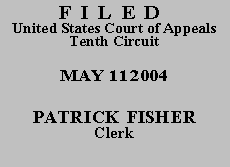

| BRIAN K. BURKHOLDER,
Petitioner-Appellant, v. L.E. BRUCE; ATTORNEY GENERAL OF THE STATE OF KANSAS, Respondents-Appellees. |
|
Petitioner-appellant, proceeding pro se, appeals the district court's order denying his petition for habeas corpus relief under 28 U.S.C. § 2254. The district court granted a certificate of appealability to consider whether the state trial court had violated petitioner's Sixth Amendment rights (1) by denying petitioner's motion to substitute counsel the day before his trial for burglary and theft, or (2) by denying his motion in the alternative to proceed pro se in that trial.
Petitioner alleges that the state trial court abused its discretion by finding his request to substitute counsel on the eve of trial untimely and by not making further inquiry into why he had requested new counsel. Petitioner also asserts that the district court committed reversible error when it determined that he was not competent to represent himself because he was illiterate and admitted that he did not understand the charges against him. We affirm the denial of petitioner's petition for a writ of habeas corpus for substantially the reasons stated by the district court.
We review a district court's conclusions of law de novo and its findings of fact, if any, for clear error. LaFevers v. Gibson, 182 F.3d 705, 711 (10th Cir. 1999). Under 28 U.S.C. § 2254(d)(1)-(2), no writ of habeas corpus shall issue unless the decision of the state court either was "contrary to, or involved an unreasonable application of, clearly established Federal law, as determined by the Supreme Court of the United States; or . . . was based on an unreasonable determination of the facts in light of the evidence presented in the State court proceeding."
Having reviewed the briefs, the record, and the standards applicable to petitions for a writ of habeas corpus, we hold that petitioner has raised no ground for a writ to issue in this case. Accordingly, we AFFIRM the denial of a writ of habeas corpus for substantially the reasons stated by the district court.
Entered for the Court
Circuit Judge
*. This order and judgment is not binding precedent, except under the doctrines of law of the case, res judicata, and collateral estoppel. The court generally disfavors the citation of orders and judgments; nevertheless, an order and judgment may be cited under the terms and conditions of 10th Cir. R. 36.3.